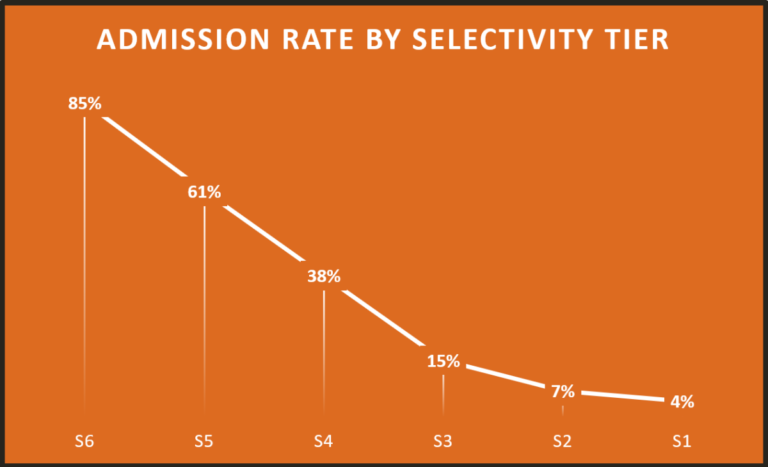
It’s not yet winter, but it’s time to think about what activities you will be doing next summer. Summers provide the perfect opportunity for high school students to distinguish themselves relative to others by gaining expertise in their core interest.
The Importance of Summer Activities
Elite colleges look at how students spent their summer, as part of their evaluation process. Was it mostly idle time? Or did the student keep busy with activities? Better yet, were the activities related to the student’s core interest, or “spike”An exceptional talent in an academic or extracurricular area... More?
So what activities help a student’s profile? There are a few major categories:
- Recognized summer camps: Attending a competitive admission summer camp, such as those listed in this spreadsheet, can increase your odds of admission to a selective college. The current list is focused on STEM activities, but will be updated with others over time. More information about these camps and how to select them is given below.
- Mentored Project: Unlike the camps above, which are mostly group activities, a mentored project represents more of a one-on-one experience. An example is a student doing individual research under the guidance of a professor. Getting such a project requires more self-initiative in contacting many potential mentors and finding one who agrees.
- Master Your Core Interest: If your core interest does not fit neatly within summer camps or mentored projects, you can use summer to work towards becoming an expert in your chosen field using the methodology described in Cal Newport’s book, High to Be a High School Superstar.
- Jobs: Need to earn money? That’s fine too, because colleges look favorably upon high school students holding a summer job. Even plain-vanilla jobs like cashier or waiter are given importance, because so few that apply to elite colleges hold these jobs.
Why Competitive Camps Help With Admissions
The competitive summer camps listed in the spreadsheet are all well-known by admissions officers at selective colleges throughout the country. The reason they matter is because the colleges know how strong the students from previous years were, and therefore trust the admission process by the camps themselves.
In the spreadsheet, I list the application deadlines for summer 2024. Some of those deadlines are as early as December 2023, so it’s time to start looking now.
I also show my estimate of the impact that each camp has (higher is better). But of course, higher impact also means more competitive, and therefore you should apply to camps with a range of impact. If you are a STEM student and don’t get admitted to any camps, you can always fall back to the excellent online courses from Art of Problem Solving.
Aren’t the Best Camps Always Free?
Some people believe that the only good camps are those that are free, or better yet, pay for the student to attend. Now it is true that some of the most prestigious camps like RSI and TASS are free, and some like Broad even pay those that are selected. And it is because they are free (or pay the student), these are some of the most competitive camps around.
However, many competitive camps are excellent despite charging fees. Examples of those include Summer Science Program or BU’s PROMYS. These fees can be expensive, but check if financial aid is available.
Camps to Avoid
You should avoid most camps that say they offer a preview of life in college. So while BU offers some very highly regarded camps like BU RISE, and PROMYS, it also offers camps that offer no admission benefit, like Summer Challenge.
In general, you should avoid any camps that talk about giving you a glimpse of college life. Here is a sampling of other camps to avoid:
Many parents mistakenly think that a student attending a camp on their first choice college campus increases odds of admission. This is false. These open-admission camps are simply revenue generators for the university. In addition, many camps are not run by the college at all, but the colleges simply rent space to the camps.
Should I Take College Classes Over Summer?
In general, no. Elite colleges are interested in admitting exceptionally capable high school students, not students halfway done with college.
The one time it is fine for a high school student to take college courses is during the school year itself, after a student has exhausted what the high school offers on that topic. For example, it is fine for a highly advanced math student to dual enroll in multivariable calculus at a local college.
That same math student should not be taking a class in linear algebra or differential equations during the summer. Instead, the student is better off enrolling in one of the math camps listed in the spreadsheet.
Do I Get Any Free Time?
The answer is, yes you do get some free time. It’s perfectly fine to have some idle time during the summer, such as a family vacation for a few weeks. But most of the summer should be busy with activities like the ones listed above.






